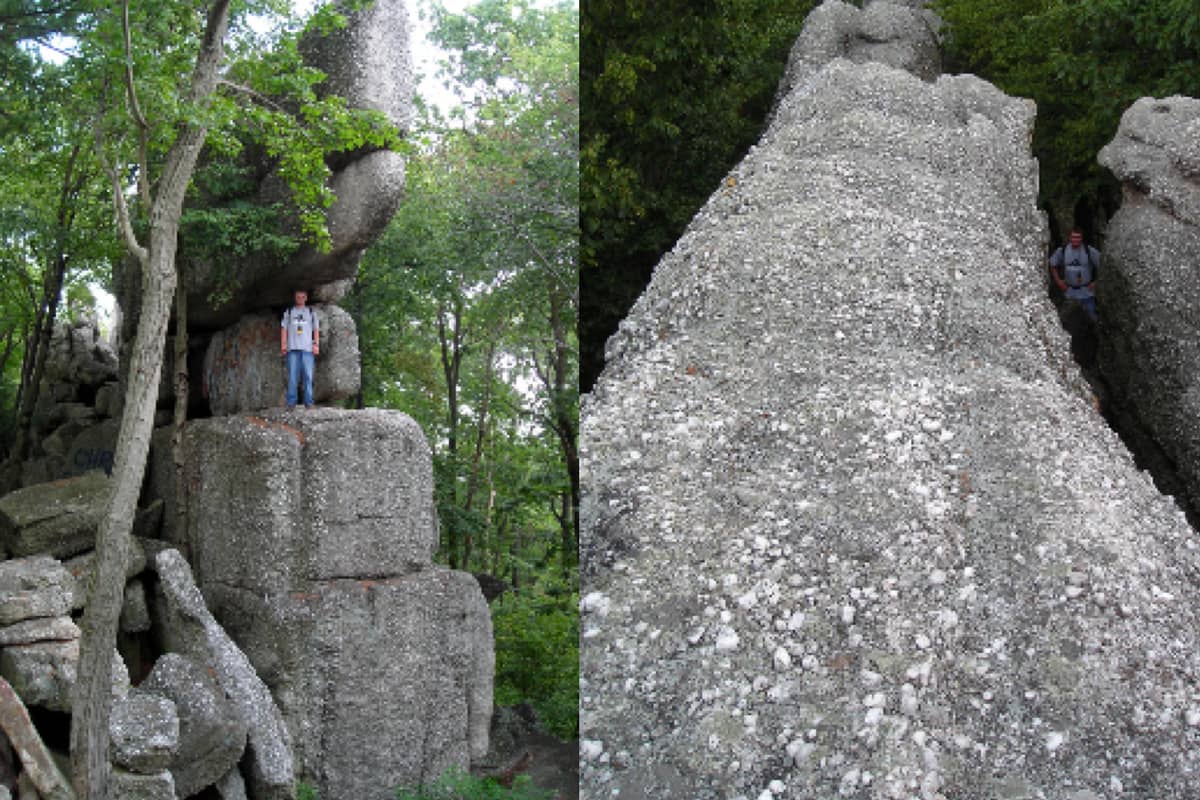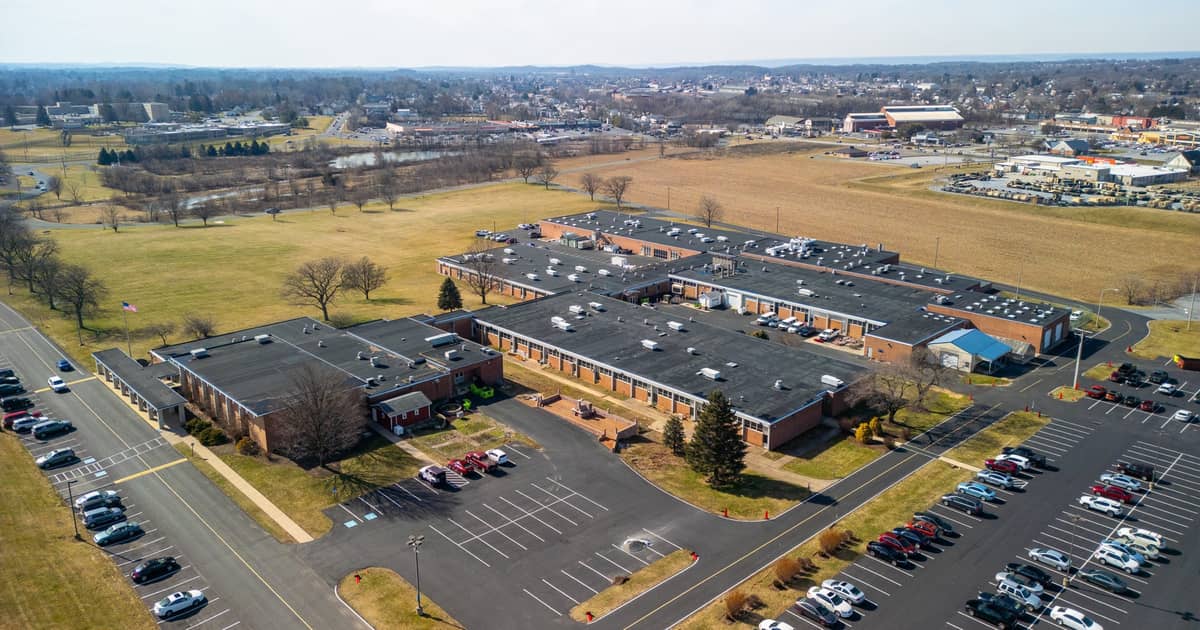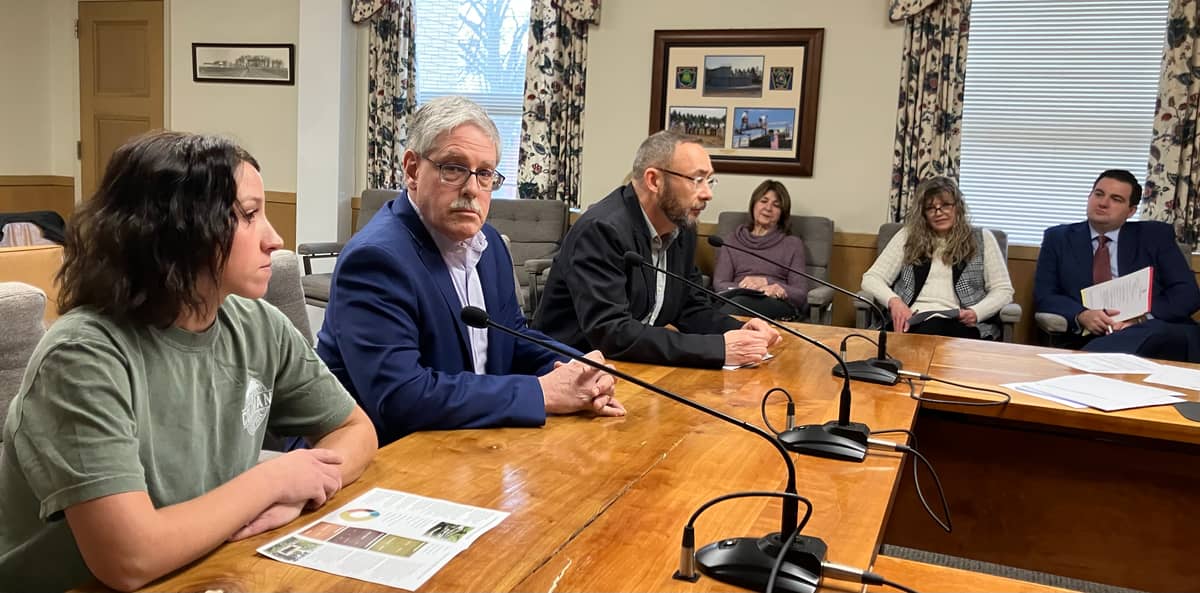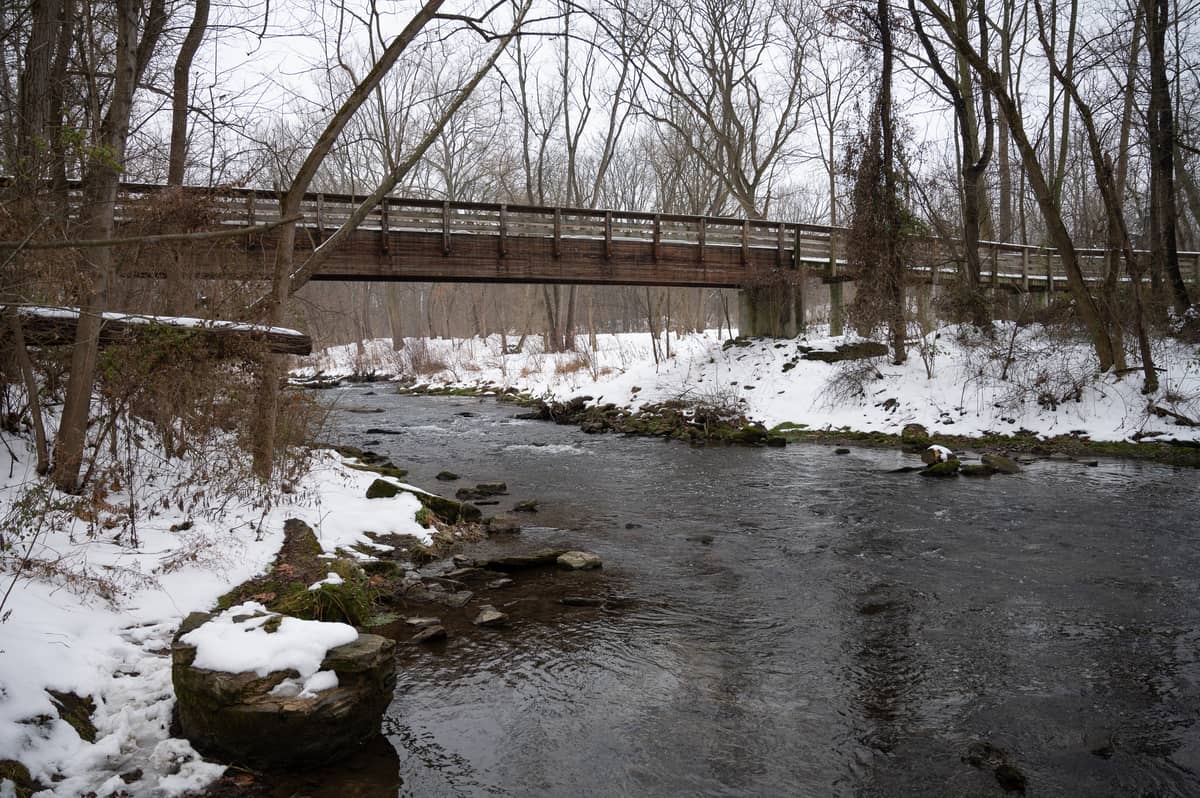The type of outcrop to inspire daydreams of giants and extraterrestrials, northern Lebanon’s Boxcar Rocks would be an outstanding geological feature in any locale.
Reaching the treetops more than 80′ high, the Boxcar Rocks are Pottsville Conglomerate, made of fine to coarse grained sandstone, and is known to contain limestone, siltstone and shale, as well as anthracite and bituminous coal. The rock also has very visible large, white quartz pebbles that can be over 2″ long.

In rough terms, the rock formation was likely accumulated by sediment from an ancient body of water. Due to the size of the pebbles, geologists believe that the water must have been a fast-flowing stream or a coast. One such body of water would be the Appalachian Basin, depicted below.

At this time, during the coincidentally-named Pennsylvania Period, Pennsylvania would have been along the equator.

The result is one of the most spectacular natural formations in Pennsylvania.

Although it has only been known as the Boxcar Rocks since the 1940’s, the formation has been a main attraction in Stony Valley for centuries. A legendary place for the Native Americans, the land became home to a resort community known as Cold Springs, beginning sometime around the late 1700’s.


Popularity of Cold Springs Resort began to wane as the automobile became more popular, and following a brief period when the resort land housed the YMCA’s Camp Shand (now in Mt. Gretna), the land was turned over to the state for hunting and other pursuits.
The Boxcar Rocks are depicted in this map of the area, which shows how close the formation lies to the Dauphin/Lebanon border (and in fact, the land once was Dauphin County, as was the rest of Lebanon).

A few travel bloggers have even shared footage on YouTube.
Want to visit the Boxcar Rocks? Here’s a map of the site.
Find more information about the Boxcar Rocks at StonyValley.com.
























